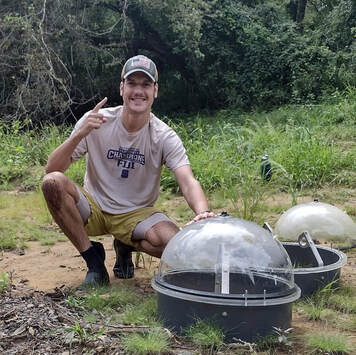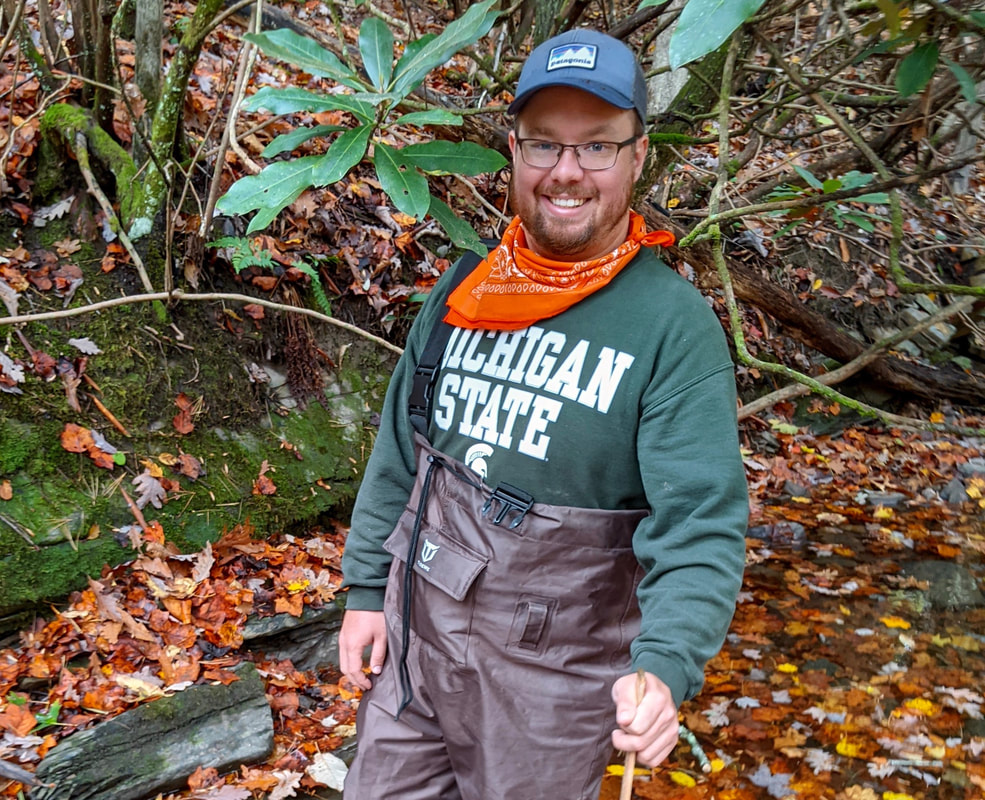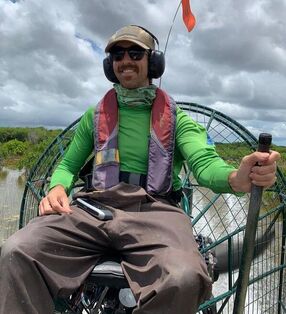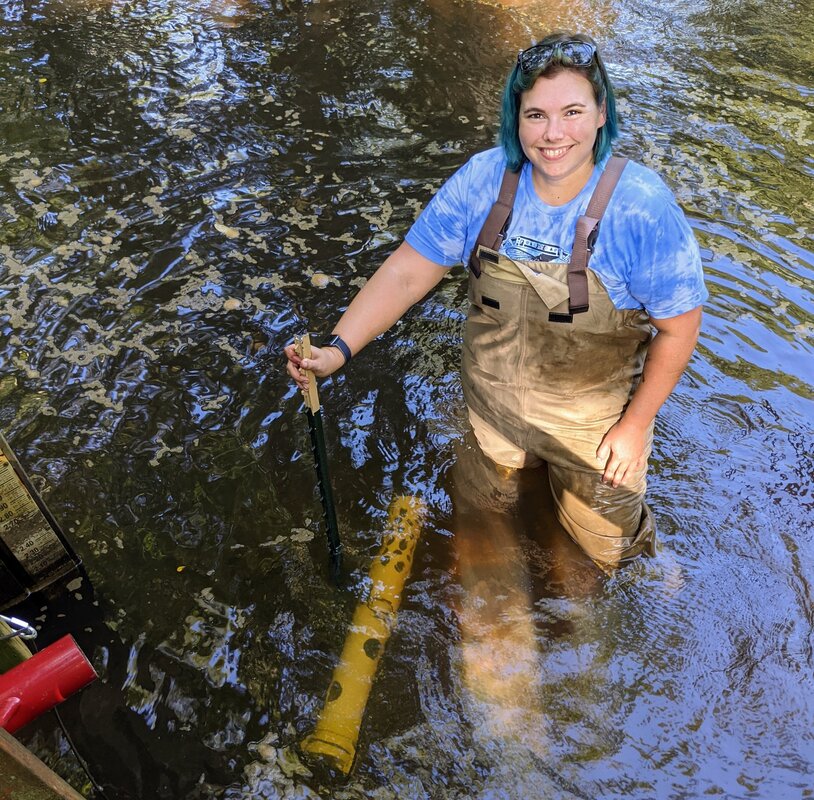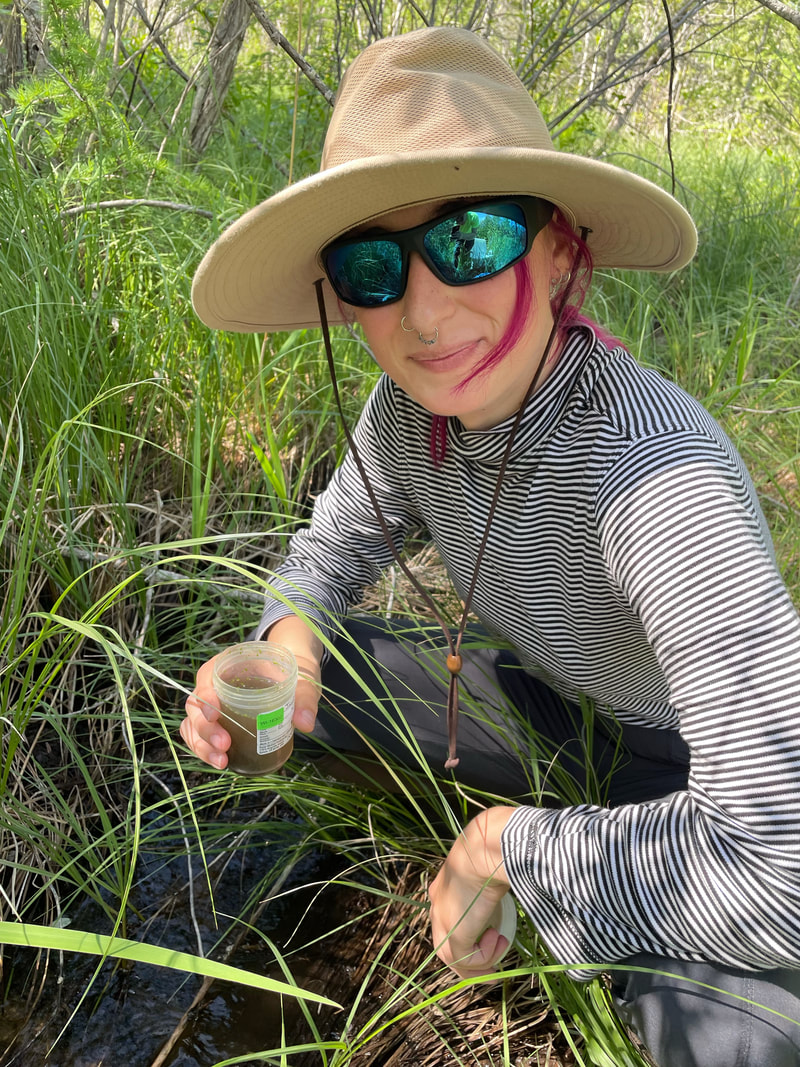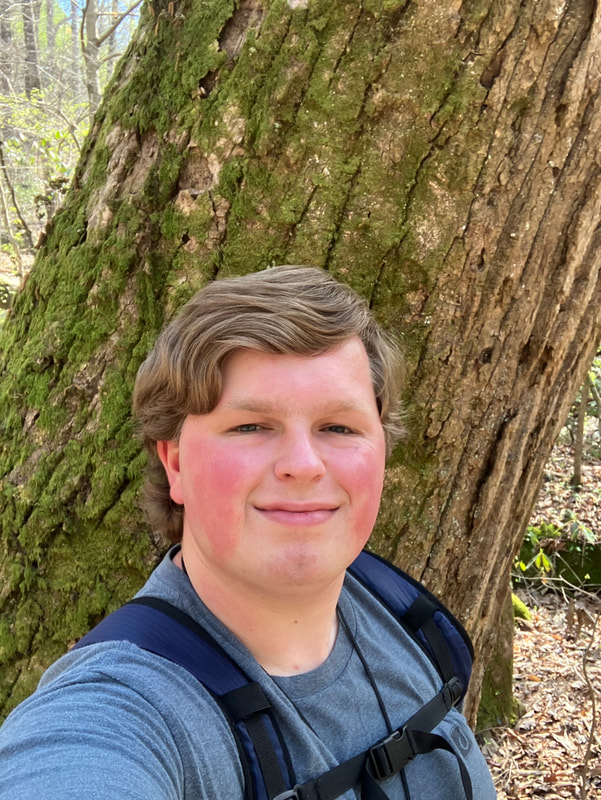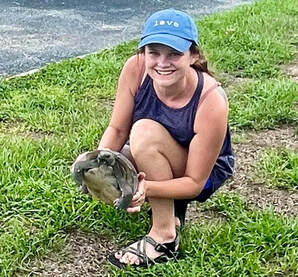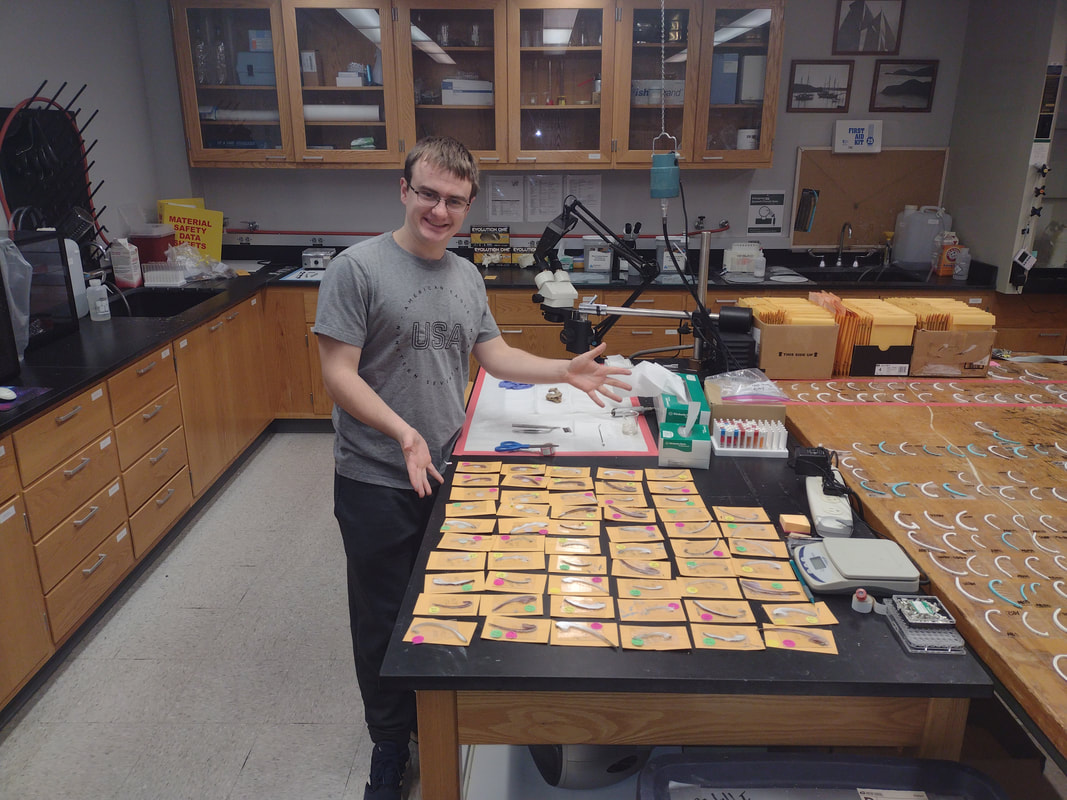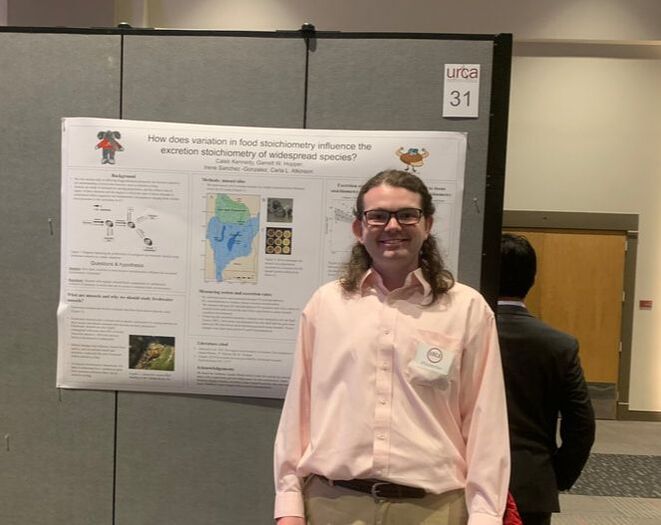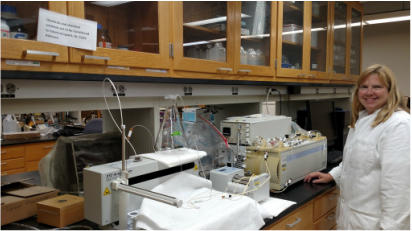Dr. Carla L. Atkinson |
|
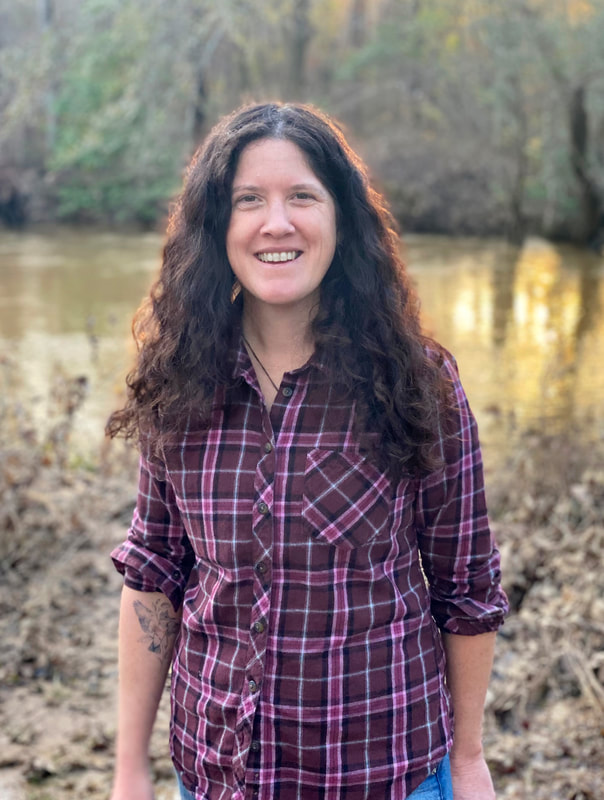
|
Ph.D. Ecology and Evolutionary Biology, University of Oklahoma
M.S. Ecology, University of Georgia B.S. Biology, Missouri State University Curriculum Vitae Google Scholar Profile Publications Lab: Bevill Hall, Room 2109 Office: Bevill Hall, Room 2109B Courses taught: BSC 320: Freshwater Studies BSC 385: Ecology and Evolution BSC 482/582: Conservation Biology BSC 650: Foundations of Ecology BSC 497/695: Coastal Plain Aquatic Ecosystems |
I study the ecology, evolution, and conservation of aquatic ecosystems with particular focus in rivers and geographically isolated wetlands. Work in my lab group uses a combination of field and mesocosm studies with larger spatial scale analyses and syntheses. With a focus on aquatic insect, mussel, and amphibian communities, I aim to understand the linkages between organisms and ecological function. Research focuses on southeastern US rivers, geographically isolated wetlands of the Gulf Coastal Plain, and Arctic stream systems.
Post Doctoral Research Associates
|
Dr. Jonathan Lopez
Ph.D. Ecology and Evolutionary Biology, University of Oklahoma B.S. Ecology, Evolution, and Conservation Biology, North Carolina State University I study animal impacts on ecosystems, specifically freshwater mussels in North American streams. Throughout my research career I have explored how mussels affect and are related to biogeochemical cycles of important nutrients and minerals. I'm interested in how these stream-dwelling animals take part in nutrient and mineral cycles at the ecosystem level, and in how these cycles mediate their relationships with other organisms--especially across the aquatic-terrestrial interface. My current research seeks to better understand freshwater mussel impacts on ecosystem function and services by combining in situ experiments studying denitrification in mussel beds with studies of mussel functional traits. See his personal website to learn more. Jonathan is funded by a NSF Postdoctoral Fellowship that is closely aligned with Carla's Career grant project. Dr. Stephen Plont
Ph.D. Biological Sciences, Virginia Polytechnic Institute & State University B.S. Environmental Geosciences, Michigan State University B.A. Chemistry, Michigan State University I am a freshwater ecosystem ecologist and biogeochemist interested in the spatial and temporal variability of ecosystem processes that influence the transport, transformation, and fate of carbon and nutrients along the aquatic continuum. My research uses a combination of field, laboratory, and modeling based approaches to understand how connectivity, heterogeneity, and environmental change impact biogeochemical cycling and water quality from the reach to the network scale, especially at ecosystem interfaces (e.g., stream confluences, aquatic-terrestrial, stream-groundwater). My current research seeks to determine how stream drying impacts carbon and nutrient cycling and fate in non-perennial streams. Stephen is working on the Aquatic Intermittency effects on Microbes in Streams (AIMS!!) project. |
Graduate Students
Ph.D. Students
M.S. Students |
Matthew B. Lodato
Ph.D. Candidate M.S. Environmental Biology, University of Southern Mississippi B.S. Marine Biology, University of Southern Mississippi My broad interests are microbial ecology, organic matter processing, and elemental cycling. I intend to study the metabolic interactions between microorganisms and macroinvertebrates to assess the impact these relationships have on carbon and nutrient cycling and other ecosystem processes. My previous research investigated the functional importance and diversity of fungi during aerial leaf litter decomposition and I led the sampling efforts of multiple, ongoing Everglades research projects focused on the population dynamics and spatial ecology of aquatic communities. Chelsea R. Smith
Ph.D. Candidate M.S. Ecology, University of Georgia B.S. Biology, Music, University of Alabama I am interested in how environmental filters can affect invertebrate community development and growth and what effect that has on carbon and nutrient cycling. I plan to study secondary production across a range of intermittent streams within the Southeast. In addition, I will look at how differing communities throughout the recolonization period affect carbon and nutrient cycling within these systems. Some of my previous research includes invertebrate community dynamics across a gradient of flow permanence, organic matter processing within isolated wetlands and water quality dynamics within a run-of-the-river reservoir. Lauren M. Morris
Ph.D. Student M.S. Biology, University of South Dakota B.S. Biology, Western Kentucky University B.A. Spanish, Western Kentucky University I am interested in aquatic ecology, conservation of freshwater invertebrates, and the community interactions between organisms. I look forward to studying ecosystem services provided by freshwater mussels through in situ experiments. Some of my previous research includes improving efficiency and survivorship of a captive rearing program for the federally endangered Hine's Emerald dragonfly, and the impact of road salts on the growth of larval salamanders in urban and remote freshwater settings. Jacob Dorris
M.S. Student (co-advised with Dr. Arial Shogren) B.S. Interdisciplinary Studies (depth study Environmental Biology), University of Alabama I am excited to study the impacts of stream intermittency and spatiotemporal environmental variation on macroinvertebrate communities and ecosystem metabolism, specifically through leaf litter decomposition in Alabama forested streams. I am broadly interested in the relationships between disturbance (natural or anthropogenic), geospatial environmental variation, and freshwater invertebrates. My prior (Bachelor's) research has studied anthropogenic disturbance impacts on the species composition and density of Gulf Coastal Plain forests across space and time, alongside variations in topography and soil composition. I have also studied the role of public education and citizen science in the conservation of Southeastern freshwater ecosystems and taxa, especially of freshwater mussels, and the development of Internet-driven tools to advance the knowledge and investment of laypersons in freshwater biodiversity. Taylor Kelley
M.S. Student (co-advised with Dr. Arial Shogren) B.S. Biological Sciences, University of Alabama I am interested in the interactions between aquatic invasive species and native species, specifically freshwater mussels, and invasive Corbicula fluminea. Additionally, in my graduate studies I am excited to study how crayfish communities respond to stream intermittency in the Southeast. My previous research during my bachelor’s degree, shows that native freshwater mussels and invasive Corbicula fluminea have overlapping distributions. This supports the hypothesis that Corbicula are not limited by habitat factors and may be passengers of change in rivers where mussels have declined due to habitat degradation. When not in the field or the lab, I enjoy spending my time with my horses, cats, and dogs. |
See the Lab Alumni
Wundergrad Students
Lab Assistance
Collaborators
|
Dan Allen - University of Oklahoma
Jon Benstead - University of Alabama Amy Burgin - University of Kansas Krista Capps - University of Georgia (Atkapps Exchange!) Lisa Davis - University of Alabama Ken Forshay - U.S. Environmental Protection Agency Ryan Garrick - University of Mississippi Stephen Golladay - J.W. Jones Ecological Research Center Halvor Halvorson - University of Central Arkansas Alex Huryn - University of Alabama Colin Jackson - University of Mississippi Matt Jenny - University of Alabama |
Jason Julian - Texas State University
Paul Johnson - Alabama Aquatic Biodiversity Center Nate Jones - University of Alabama Kevin Kuehn - University of Southern Mississippi Kevin Kocot - University of Alabama Jeff Lozier - University of Alabama John Pfeiffer - Smithsonian Amanda Rugenski - University of Georgia Lora Smith - J.W. Jones Ecological Research Center Arial Shogren - University of Alabama Amanda Subalusky - University of Florida Caryn Vaughn - University of Oklahoma |

